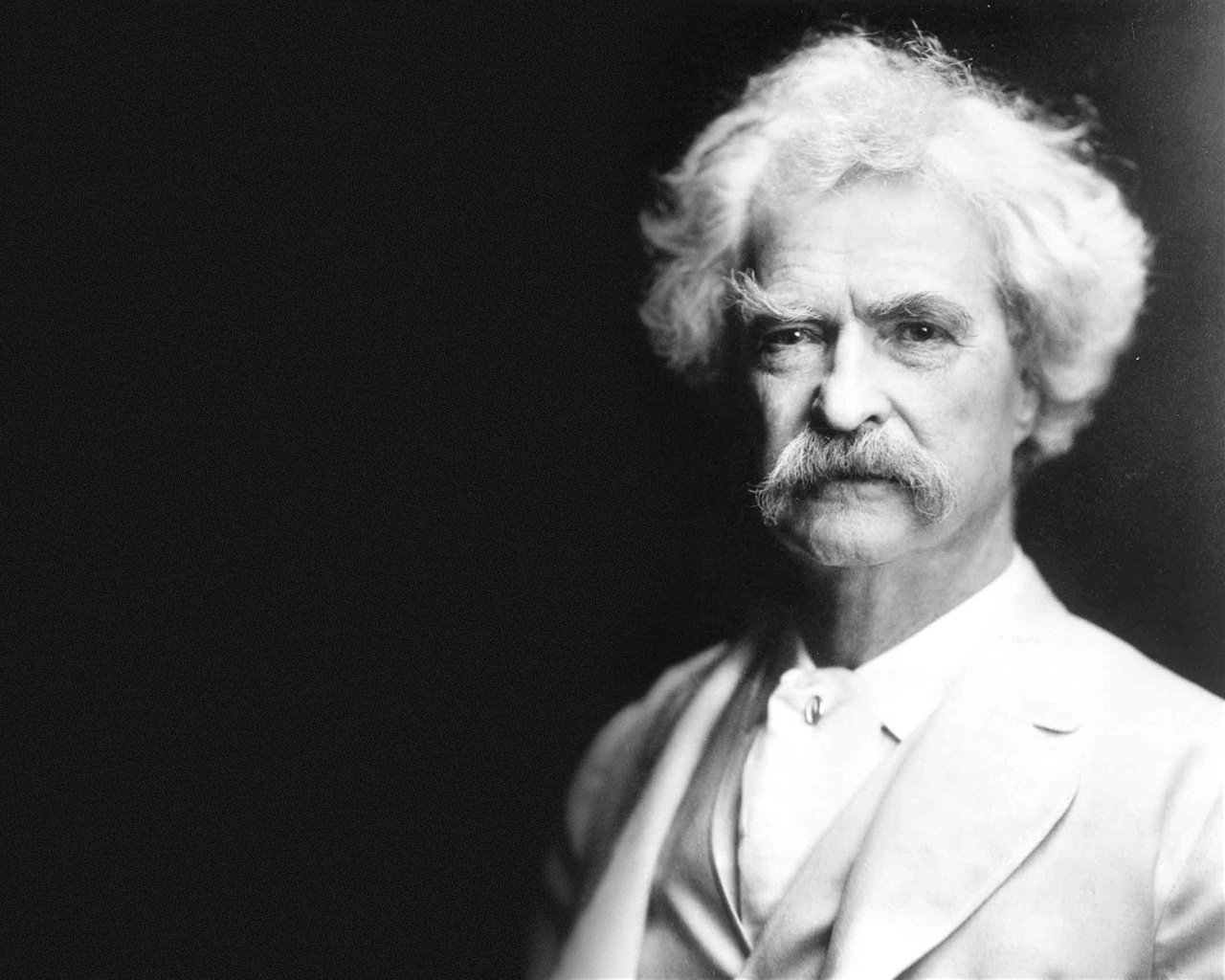| « Signs of a Pyramid Scheme | Discrimination Remains Legal » |
Is Shakespeare Dead? by Mark Twain

This little book is hilarious, but it's not about Shakespeare. Oh sure, on the surface it's an investigation into who authored the Plays and Poems, but if you only read it on the surface then you'll find it a puzzling and frustrating book. In the very first chapter, Twain explains that he had no good reason to care about the controversy to begin with. But the riverboat pilot he was apprenticed to loved to recite Shakespeare and draw our young Twain into debating the authorship question.
This passage seems to be one of the keys of the whole book:
Study, practice, experience in handling my end of the matter presently enabled me to take my new position almost seriously; a little bit later, utterly seriously; a little later still, lovingly, gratefully, devotedly; finally: fiercely, rabidly, uncompromisingly. After that, I was welded to my faith, I was theoretically ready to die for it, and I looked down with compassion not unmixed with scorn, upon everybody else's faith that didn't tally with mine. That faith, imposed upon me by self-interest in that ancient day, remains my faith to-day, and in it I find comfort, solace, peace, and never-failing joy. You see how curiously theological it is.
This is a book about how we form our beliefs and how we attempt to share them: Not very well on either count. All throughout the book he makes it clear that both sides of the controversy built their arguments on conjecture. Yet he appears to take the discussion quite seriously at other points. I can see why some readers get frustrated. By the opening of chapter 11 he comes clean:
Am I trying to convince anybody that Shakespeare did not write Shakespeare's Works? Ah, now, what do you take me for? ... No-no, I am aware that when even the brightest mind in our world has been trained up from childhood in a superstition of any kind, it will never be possible for that mind, in its maturity, to examine sincerely, dispassionately, and conscientiously any evidence or any circumstance which shall seem to cast a doubt upon the validity of that superstition. I doubt if I could do it myself.... We get them all at second-hand, we reason none of them out for ourselves. It is the way we are made.
Now Twain is taking up the real subjects of the book: Prejudice, intolerance, being entrenched in an opinion that is based on nothing, and those subtle ways our speech can denigrate the people foolish enough to belong to a group other than ours. You can almost see him winking at us as lampoons the pearl-clutching call for civility just before slandering his opponents as "thugs":
The upholders of the Stratford–Shakespeare superstition call US the hardest names they can think of, and they keep doing it all the time; very well, if they like to descend to that level, let them do it, but I will not so undignify myself as to follow them. I cannot call them harsh names; the most I can do is to indicate them by terms reflecting my disapproval; and this without malice, without venom. To resume. What I was about to say was, those thugs have built their entire superstition upon INFERENCES...
This is one of many spots where Twain had me laughing out loud. He also got me every time he quoted Shakespeare's epitaph, a running joke about how those barren and trivial words are the only ones that can be reliably attributed to Stratford Shakespeare.
Seeing this nugget from chapter 12 as a "quote of the day" yesterday is what prompted me to read the book:
I cannot call to mind a single instance where I have ever been irreverent, except toward the things which were sacred to other people.
When he wrote that, Twain had an even better line languishing in his unfinished novel The Mysterious Stranger:
Irreverence is another person's disrespect to your god; there isn't any word that tells what your disrespect to his god is.
Little about argumentation has changed in the 100 years since Mark Twain wrote this book. We still form opinions based on sketchy information (now we call it fake news) and we still talk to each other like enemies, even when the dispute is a trivial one. We go to any lengths to excuse the bad behavior of people in our tribe and easily convince ourselves that we need not worry about the humanity of the "thugs" in other tribes. Would Twain have been surprised to know that the passage of a century would change so little? Of course not, he predicted it would take at least three centuries (the book was published in 1909):
I haven't any idea that Shakespeare will have to vacate his pedestal this side of the year 2209. Disbelief in him cannot come swiftly, disbelief in a healthy and deeply-loved tar baby has never been known to disintegrate swiftly, it is a very slow process. It took several thousand years to convince our fine race--including every splendid intellect in it--that there is no such thing as a witch; it has taken several thousand years to convince that same fine race--including every splendid intellect in it--that there is no such person as Satan; it has taken several centuries to remove perdition from the Protestant Church's program of postmortem entertainments; it has taken a weary long time to persuade American Presbyterians to give up infant damnation and try to bear it the best they can; and it looks as if their Scotch brethren will still be burning babies in the everlasting fires when Shakespeare comes down from his perch.
He wrote that paragraph with his tongue firmly in-cheek, just as he wrote most of this book. He knew full well that millions still believed in witches and Satan in 1909, just as millions continue to do today. Will we ever get better at discerning truth from fiction? Maybe. Probably not. But surely all reasonable people can agree that Shakespeare's epitaph is garbage:
Good friend for Iesus sake forbeare
To digg the dust encloased heare:
Blest be ye man yt spares thes stones
And curst be he yt moves my bones.
You can read the full text of Mark Twain's Is Shakespeare Dead? here: http://www.online-literature.com/twain/is-shakespeare-dead/1/


Recent comments